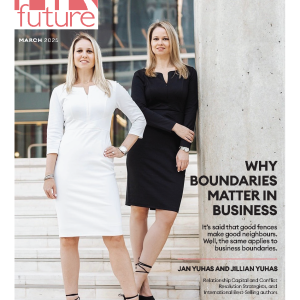Characterized by freelance, temporary, or short-term contracts, the gig economy represents a fundamental shift from traditional, long-term employment models. This new paradigm, fueled by the rise of digital platforms and a changing workforce ethos, offers unparalleled flexibility and autonomy, challenging conventional notions of what a career path looks like.
As an expert in HR and remote work, I have witnessed the gig economy’s rapid growth and its profound impact on career trajectories. This seismic shift is not merely about the nature of jobs but a deeper transformation in the perception and realization of career goals.
This article aims to explore the multifaceted influence of the gig economy, dissecting how it redefines career paths, alters skill requirements, and reshapes our understanding of professional success in the 21st century. In this era of change, the gig economy stands as both a disruptor and an innovator, creating new opportunities and challenges for workers worldwide.
The Rise of the Gig Economy
The ascension of the gig economy is a tale of gradual yet revolutionary change, driven by a confluence of technological, economic, and social factors. This new work paradigm, which veers away from the traditional 9-to-5 employment model, has been gaining momentum over the past decade.
The proliferation of digital platforms has made it easier than ever for individuals to find gig work that matches their skills and schedules. These platforms not only connect freelancers with clients but also provide the infrastructure for managing work and payments, making gig work more accessible and viable.
Recent statistics reinforce this trend, indicating that as of 2023, nearly 36% of U.S. workers are part of the gig economy, either through their primary or secondary jobs. This figure is projected to rise, with estimates suggesting that by 2027, over half of the workforce will be engaged in gig work, either partially or fully.
Economically, the shift towards gig work can be linked to the greater flexibility it offers both employers and workers, particularly in response to fluctuating market demands. Socially, there’s a growing desire, especially among younger generations, for work that offers a better balance between personal and professional life.
This preference for flexibility, autonomy, and the opportunity to pursue a variety of projects has fueled the expansion of the gig economy, shaping it into a key component of the contemporary labor market.
Characteristics of the Gig Economy
The gig economy, a burgeoning domain of the modern workforce, is distinguished by its unique characteristics that set it apart from traditional employment. These attributes shape the experiences of those who navigate this sector.
Flexibility and Autonomy
A defining feature of the gig economy is the unparalleled flexibility it offers. Workers have the freedom to choose when and how much they work, allowing them to tailor their work schedules to fit personal commitments and preferences.
This autonomy extends beyond mere scheduling; gig workers can select the projects they undertake, giving them control over the nature and scope of their work. This level of flexibility is particularly appealing to those who seek a better work-life balance or who wish to pursue multiple interests simultaneously.
Variety of Opportunities
The gig economy is marked by a diverse array of opportunities. From freelance writing and graphic design to ride-sharing and home rental services, the range of gigs available is extensive and ever-expanding.
This diversity allows individuals to experiment with different roles and industries, leading to a more dynamic and enriching career path. It also enables workers to develop a broad skill set, making them more adaptable and competitive in the job market.
Technology’s Role
Technology is the backbone of the gig economy. Digital platforms are the primary medium through which gig work is sourced and managed. These platforms facilitate the connection between gig workers and clients, provide tools for managing projects, and streamline the process of payment.
The ease of access to gig opportunities provided by technology has been a critical factor in the growth of the gig economy, democratizing the ability to work remotely and flexibly. Moreover, technology has enabled the gig economy to scale, reaching a global workforce and creating a more interconnected and versatile labor market.
Impact on Career Paths
Despite the transformation in the nature of work, higher education institutes and universities still largely focus on preparing students for traditional full-time 9–5 jobs. However, incorporating the study and practice of the gig economy, alongside the strategic planning process in educational institutions, could better equip students for the evolving workforce.
By integrating these elements into the curriculum and career services, institutions can ensure that graduates are not only prepared for traditional roles but are also adept at navigating the complexities of independent work in the gig economy. This approach acknowledges the shifting landscape of employment and prepares students more holistically for their future careers.
The gig economy has fundamentally altered the landscape of career development, introducing new dynamics in skill acquisition and career progression.
Shift in Skill Sets and Experience Requirements
In the gig economy, the demand for certain skills and experiences has shifted significantly.
Emphasis on adaptability and self-management. The nature of gig work, often characterized by its project-based and transient nature, places a premium on adaptability. Workers must quickly adjust to new environments, tasks, and teams. Moreover, self-management becomes critical.
Without the structure of a traditional office environment, gig workers must excel at time management, self-discipline, and setting their own deadlines. This independence in managing one’s work and schedule requires a high degree of self-motivation and organizational skills.
Diverse skill acquisition through varied gigs. The gig economy enables workers to engage in a wide variety of tasks and roles. This variety allows for the acquisition of a diverse skill set, as individuals are not confined to the repetitive tasks of a single job.
They can explore different industries and roles, gaining a broader perspective and a more versatile skill set. This diversity in experiences makes them more adaptable and prepared for the rapidly changing job market.
Changing Perceptions of Long-Term Career Progression
The gig economy is also redefining how career progression is perceived and planned.
Project-based careers vs. long-term positions. In the gig economy, career paths are increasingly project-based rather than position-based. Professionals build their careers around a portfolio of varied projects and gigs, as opposed to climbing a traditional corporate ladder in a single organization. This shift challenges the conventional idea of a linear career trajectory, with workers now accumulating a tapestry of diverse experiences.
Impact on career stability and planning. This new model of career progression impacts how individuals plan and perceive career stability. The traditional sense of job security associated with long-term positions is less prevalent.
Instead, gig workers must continuously plan for their next project, often cultivating multiple opportunities simultaneously. This requires a proactive approach to career planning, with an emphasis on networking, skill development, and personal branding to remain competitive and relevant in the gig economy.
Opportunities and Challenges of the Gig Economy
The gig economy presents a unique blend of opportunities and challenges, each shaping the experiences of those who venture into this flexible work model.
Opportunities
The gig economy opens doors to various opportunities that can be transformative for career growth and personal fulfillment.
- Entrepreneurial Ventures and Self-Employment
The gig economy empowers individuals to pursue entrepreneurial ventures and self-employment opportunities. This autonomy allows professionals to create and manage their own businesses, fostering innovation and creativity.
Freelancers and gig workers can explore niche markets, develop unique services or products, and directly engage with their customer base, offering a level of control and personal satisfaction that traditional employment often lacks.
- Broader Access to Job Markets
The digital nature of the gig economy provides broader access to job markets, both locally and globally. This accessibility breaks down geographical barriers, allowing professionals to offer their services beyond their immediate locales.
It opens up a world of opportunities for those in remote or underserved areas, who can now access a global marketplace of potential clients and projects.
- Personalized Career Development
The gig economy enables a more personalized approach to career development. Professionals can choose gigs that align with their interests, skills, and career goals.
This flexibility allows for a more dynamic and fulfilling career trajectory, as individuals can continuously adapt and evolve their career paths to suit their changing preferences and life circumstances.
Challenges
Despite these opportunities, the gig economy also poses significant challenges that require careful navigation.
- Lack of Traditional Job Security and Benefits
One of the most significant challenges in the gig economy is the lack of traditional job security and benefits. Gig workers often miss out on the safety nets provided by permanent employment, such as health insurance, retirement plans, and paid leave.
This absence of benefits can lead to financial and personal strain, particularly in times of illness or economic downturns.
- Inconsistent Income and Work-Life Balance Issues
The gig economy is often characterized by fluctuating incomes and unpredictable workloads, leading to financial instability for many workers.
Additionally, the blurring of lines between personal and professional life can lead to work-life balance issues. Without clear boundaries, gig workers may find themselves overworking or struggling to disconnect from work.
- Navigating Uncertain Regulatory and Tax Environments
Gig workers face the complexity of navigating uncertain regulatory and tax environments. As independent contractors, they are responsible for their own tax obligations, which can be daunting and complex without traditional employer support.
Moreover, the regulatory landscape for gig work is often unclear and varies by location, adding another layer of complexity for those working across different jurisdictions.
Future Outlook and Predictions
As we look ahead, the gig economy is poised to continue its evolutionary journey, shaping the future of work in significant ways.
Trends shaping the future of the gig economy. Emerging trends suggest an increasing integration of technology in gig work, with platforms becoming more sophisticated in matching skills to projects. The rise of AI and machine learning could further refine these processes, enhancing the efficiency of gig work.
Additionally, there’s a growing emphasis on sustainable and ethical gig work practices, with both workers and clients becoming more conscious of the social and environmental impact of their engagements.
Potential changes in employment laws and policies. In response to the gig economy’s growth, we can anticipate changes in employment laws and policies.
Governments and regulatory bodies are beginning to recognize the need for better protection and rights for gig workers. This could lead to the implementation of policies that offer more security and benefits akin to those in traditional employment, potentially reshaping the legal framework of gig work.
Predictions for career paths in the evolving work landscape. Career paths in the gig economy are likely to become more normalized and structured. As the gig economy matures, we may see a more systematic approach to career development within this space. Professionals might increasingly view gig work not as a temporary solution but as a viable long-term career path.
This shift will encourage a more strategic approach to gig work, with individuals considering long-term goals and how various gigs can contribute to their overall career trajectory. As such, the future may hold a workforce that is more agile, versatile, and adept at navigating a diverse range of professional experiences.
Conclusion
The gig economy is not just a trend but a significant shift in the way we think about work and careers. As we move forward, it’s essential for individuals and organizations alike to adapt to this new landscape. Embracing flexibility, fostering adaptability, and being open to diverse career experiences will be key to thriving in the gig economy era.
By understanding the nuances of this evolving work environment and preparing for the changes it brings, both workers and companies can harness the full potential of the gig economy, turning challenges into opportunities for growth and innovation.
Guest Writer

























